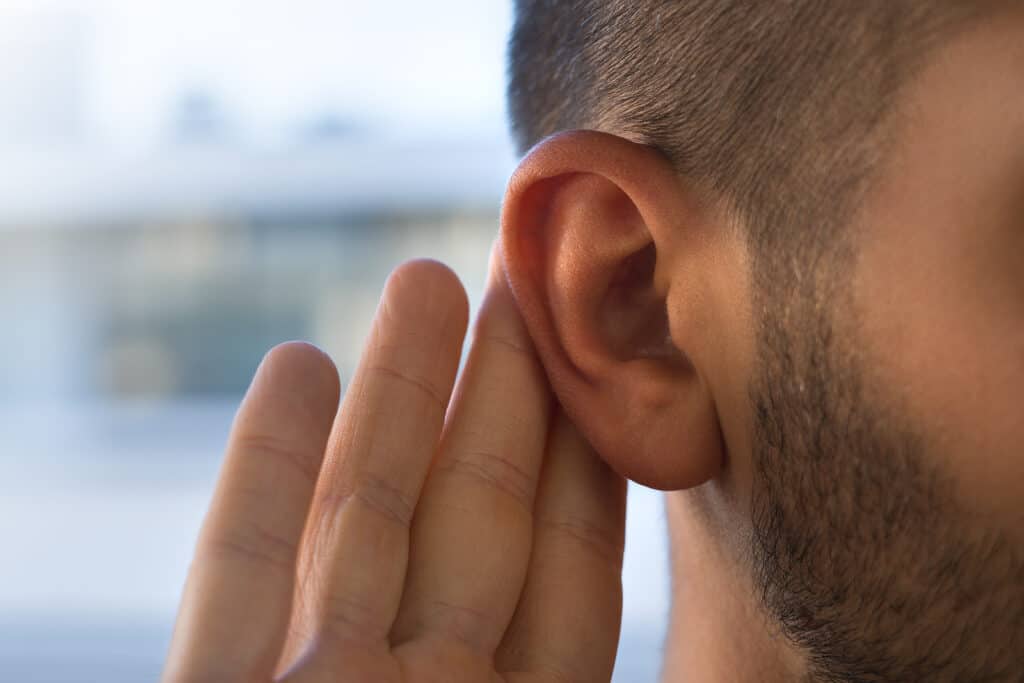Hearing loss takes many different forms. Some people have trouble hearing particular sounds, such as the voices of children or birdsongs. Others have trouble hearing if they aren’t able to couple that sound with a visual connection, such as watching lips move. One of the most common practical experiences of hearing loss is the struggle to hear in the context of background noise. When too much noise is present in an environment, the sounds can become a jumbled mess. Rather than hearing one voice in contrast with a morass of other sound, these people simply hear a wash of background noise, including the sound of that speaker. For those who have trouble hearing in the context of background noise, a recent study demonstrated that brain exercises can help. In fact, a game was developed to help people with hearing loss practice following conversations. This game had strong positive results when research participants engaged with it on a regular basis. Let’s take a closer look at the research design, as well as what it tells us about hearing in the context of background noise.
Brain Training
This recent study was published under the title “Audiomotor Perceptual Training Enhances Speech Intelligibility in Background Noise” in the journal Current Biology. The study recruited 24 elderly participants with an average age of 70 years. 12 of these participants played a brain training game that helped them identify sounds in the context of noise. They worked on the game for 3.5 hours a week for 8 weeks. All of the participants had mild to severe hearing loss and had worn hearing aids for an average of 7 years. The other 12 participants played another game that challenged their auditory working memory. That other game was not expected to help with hearing in background noise and was simply used as a control group. The findings were quite positive and significant. Those who played the game made out 25% more words than the control group.
Hearing and Neurology
What does this study tell us about the process of hearing in background noise? In the first place, the researchers interpreted that hearing is a whole-brain activity, not just a product of one region of the mind. The auditory cortex is the region of the brain responsible for basic sound processing, but it does not work in isolation of other brain regions that control language and complex thought. Another interpretation of the study was that, since hearing occurs in the brain, it is possible to exercise that function. Although the brain is not a muscle, many scholars use the metaphor of mental “exercise” to describe what happens when the brain is challenged. Providing difficult puzzles, tasks, and stimuli to the brain is a way to carve out neural pathways and to enrich brain functioning. In the case of hearing sound in the context of background noise, it seems like that mental focus is a task that can be developed. Of course, those who do not have hearing loss have an easier time performing this task, even in difficult sonic environments. Yet, those who have hearing loss are not without hope. Mental exercises, such as that provided by the brain training game, can improve the skill of listening in loud contexts.
Hearing Aids and Background Noise
Although this game shows that the brain can learn to function better in difficult sonic environments, the latest hearing aids are also providing better hearing assistance than ever. These devices use Digital Signal Processors (DSPs) to transform an audio signal before it is passed along to the eardrum. This transformation can even analyze and identify background noise. When the DSP finds background noise, that sound can be lowered in relation to others sounds, such as human voices. If you are interested in learning more about hearing aids that can help with reducing background noise, the first step is to get a hearing test. When we have a diagnosis of your hearing needs, we can determine if these hearing aids are right for you. Don’t put off getting an updated hearing test. Although the brain can learn to do better in difficult circumstances, treatment is the only durable solution for hearing loss.





